Donald Trump opponents’ last big hope as deportations loom
Observers say entire migrant communities will be affected by the President elect’s crackdown – but will its sheer ambition be its undoing?
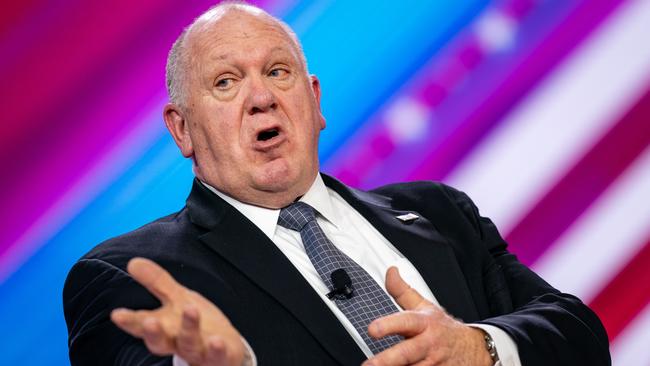
When Donald Trump banned people from six predominantly Muslim countries from entering the US early in his first administration, a small army of lawyers and charities rushed to challenge the order.
Pictures of lawyers seated on the floor of John F Kennedy airport, hunched over laptops as they fought for the release of detained passengers, became a symbol of the resistance to Trump’s hardline immigration strategy.
With the president-elect promising to begin the biggest mass deportation in American history on day one of his return to the White House in January, the same network of lawyers and non-profit organisations is gearing up to confront him in court again.
The Trump administration they will face this time will be a very different beast. Many of the first-term efforts to curb immigration – the border wall, the “Muslim ban” and family separations at the border with Mexico – were poorly planned and foundered in court.
But Mr Trump’s new immigration team, led by first-term veterans Stephen Miller, the incoming deputy chief of staff, and Tom Homan as border tsar, learnt from those defeats. They are much better prepared and ready to lean on Republican politicians in Congress and state houses, conservative judges and even the US military, which will be deployed to hunt down and deport millions of undocumented migrants.
These plans have deeper public backing now than eight years ago, when Mr Trump’s margin of victory was far slimmer. Exit polls in November showed that 40 per cent of voters (and an overwhelming majority of Republicans) think that most undocumented immigrants in the US should be deported – up from 25 per cent when he won in 2016.
“Every presidential authority … will be used, from the Department of Defence to the Department of Justice to the Department of Homeland Security,” Mr Miller told Fox News. “The entire world … will get this message … It will be the end of the invasion. It will be the beginning of the liberation.”
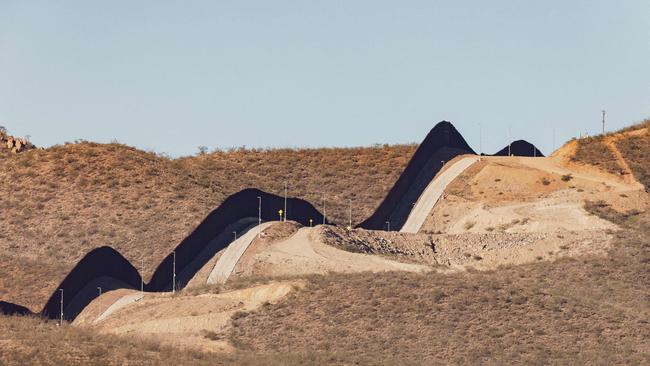
Mr Miller and Mr Homan have signalled their readiness to pursue not only migrants but any charities, advocacy groups and local and state officials who stand in their way.
“My own feeling is that it’s going to be much worse than the first four years,” said Lee Gelernt, an lawyer for the American Civil Liberties Union.
“Although we will be more prepared, they will be more prepared. They’ve had four years to think about the ways in which we were able to block some of their efforts.”
Mr Gelernt said several of Mr Trump’s proposals, including the plan to deploy the military to round up undocumented migrants and a pledge to end birthright citizenship, which is protected by the 14th Amendment, were “flatly illegal”.
“We will be ready with legal challenges, but the fact is that there are a lot of things that he can do legally that are very harsh,” he said.
Large organisations such as the ACLU are readying for a prolonged legal battle but many smaller non-profits are hoping to avoid a confrontation that could ruin them.
“They could almost bankrupt us with an audit,” said the head of one immigration non-profit, who did not want to be named. “We don’t have a legal department. We don’t have big donors.”
Even the threat of legal action could push many groups to the brink, he said.
“No one knows yet how far they are willing to go,” he said. “If they focus on the big boys like ACLU, we might hang on. If they start digging down, we are in trouble.”
Hopes that the crackdown will overlook smaller immigration charities look slim, however. The HR 9495 bill that would allow the Trump administration to designate non-profits as supporters of terrorism and strip them of their tax-exempt status recently passed the House of Representatives and was received in the Senate.
The legislation was introduced to target campus protests against Israel’s war in Gaza but civil rights lawyers fear it could be used to target migrant charities.
Catholic charity Annunciation House has already spent months in litigation under similar laws in Texas, despite a protest from the Pope, who denounced the lawsuit as “sheer madness”.
Aimee Santillan, a policy analyst with the Hope Border Institute, based in El Paso, said Operation Lone Star, the anti-immigration crackdown under Texas Governor Greg Abbott was “a road map for what the Trump administration might do”.
“HR 9495 might target organisations like ours … We don’t have a lot of resources to undertake a big legal battle,” she said. “We have our attorneys ready. We’re going to go as far as we can and just see what happens.”
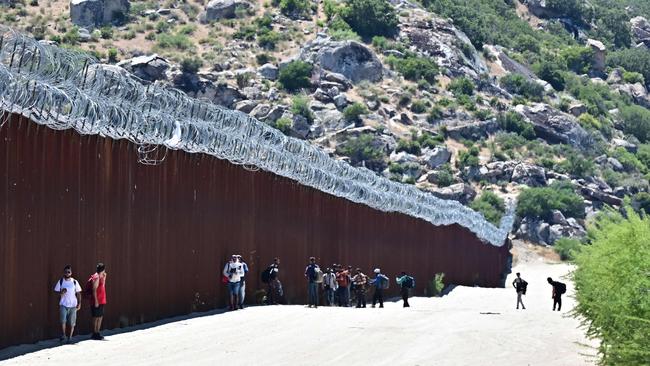
Immigration crackdowns have already led to an exodus from southern states such as Florida, where Governor Ron DeSantis imposed stiff penalties on companies that employed undocumented migrants last year. If Mr Trump really tries to hunt down millions of migrants, it could prompt a nationwide flight from red to blue states, where Democrat governors are likely to be more hostile to the White House’s approach.
Advocates foresee the possible emergence of a new Underground Railroad – the 19th-century network of secret routes and safe houses that helped African-American slaves escape to northern states and Canada.
“There is a lot of conversation around that,” said Ronnate Asirwatham, the director for government relations at Network Lobby for Catholic Social Justice.
The Pew Research Centre estimates that 70 per cent of households with at least one person in the US illegally also contain someone in the country legally. Mr Trump has made it clear, however, that he does not wish to return to the controversial family separation policy that prompted an outcry in his first term. He recently told NBC News that “the only way you don’t break up the family is you keep them together and you have to send them all back”.
That suggests that millions of legal migrants would potentially be forced to leave the country too.
“The biggest myth that we have to break through is that this kind of crackdown will only affect undocumented migrants or an immigrant who has had dealings with the criminal justice system,” Ms Asirwatham said.
“It’s not just going to be a tiny subset of people. Entire communities will be affected.”
Mr Homan has signalled that he is ready to pursue migrants into Democratic states and “sanctuary cities”, municipalities that refuse or limit their co-operation with federal immigration enforcement.
After Mike Johnston, the Democratic mayor of Denver, said that he would resist Mr Trump’s deportation plan in November, Mr Homan issued a blunt threat. “Me and the Denver mayor, we agree on one thing,” he said on Fox News. “He’s willing to go to jail. I’m willing to put him in jail.”
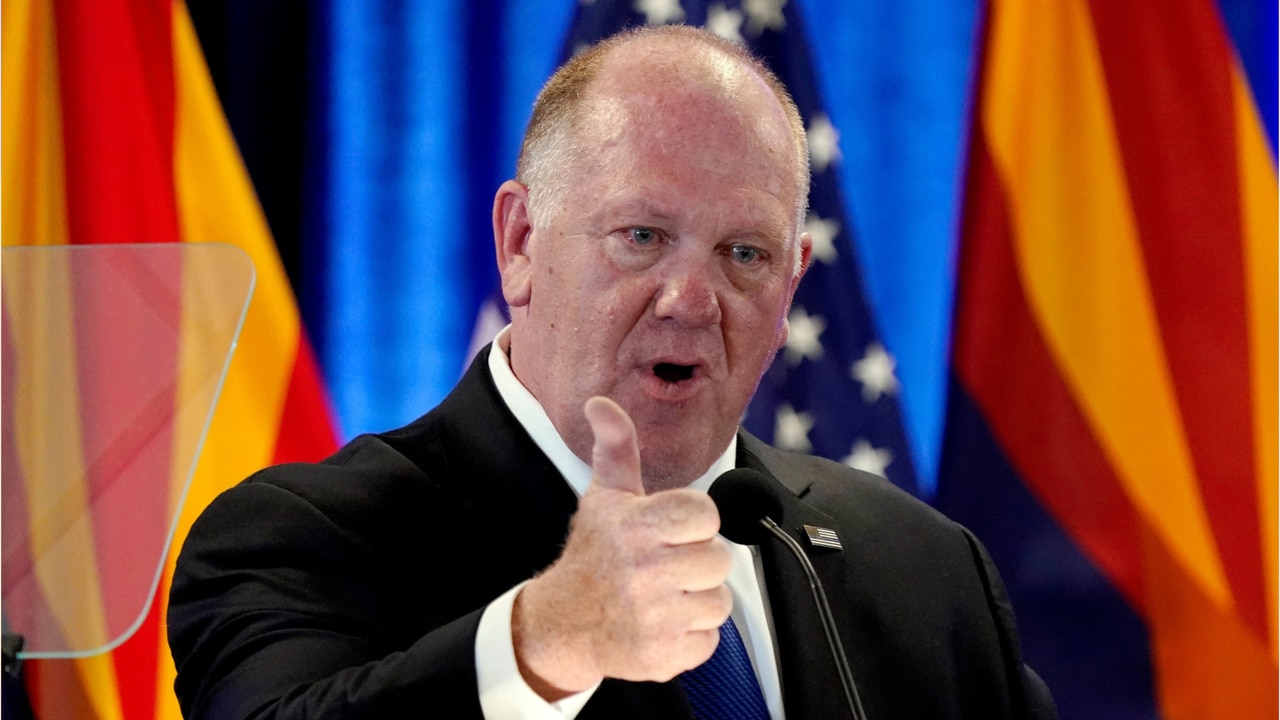
During the presidential campaign, Democratic nominee Kamala Harris tacked to the right on immigration, promising tougher border restrictions than the Biden White House had pursued. Mr Trump still made historic gains among Latino voters.
Now immigration groups suspect that Democrats in Congress will be hesitant to offer support or object to mass deportations until public opinion swings against Mr Trump’s policy.
“Unfortunately, from what I’ve seen, the Democratic Party is taking completely the wrong lesson from this – that we didn’t run far enough to the right on immigration,” said Becca Heller, founder of the International Refugee Assistance Project, which sued the Trump administration over the 2017 “Muslim ban”.
“We are seeing in the election post-mortem that Democrats, particularly in swing districts, are really, really afraid of talking about immigration,” Juliana Nascimento, the deputy director of federal advocacy at United We Dream, an immigration activist group, said. “We saw Democrats trying to move to the right, and they just are not as extreme as Republicans. When people have the choice between real Republican and diet Republican, they go for the real thing.”
Instead, the most powerful opposition to Mr Trump is likely to come from business. Industries such as construction, hospitality and farming would be highly exposed by mass deportations of cheap migrant labour. Some leading players are pleading for exemptions from the president-elect’s plans. About 40 per cent of America’s farmworkers are undocumented. The American Business Immigration Coalition has projected that agricultural output could fall by up to dollars 60 billion. DeSantis’s migrant crackdown in Florida has already prompted a crippling labour shortage and a slump in production.
“I don’t know how much red states are going to be willing to follow through on this when it starts decimating their economies,” Ms Heller said. She cited Trump’s attack on Haitian migrants in Springfield, Ohio, during the campaign, including his false claim that immigrants had killed and eaten household pets.
“Ohio welcomed Haitians in for a reason,” Ms Heller said. “It wasn’t because they wanted to be an asylum destination. It was because their economy was in desperate need of support building up the workforce.”
Ultimately, the sheer ambition of Trump’s deportation plan could be its undoing, she predicted.
“You can’t end chaos in immigration and then uproot 11 million people from their communities and send them out of the country. Those promises can’t coexist,” she said. “Trump offered voters someone to blame. At some point, the reality will hit that immigration keeps costs down more than it drives costs up, and people will react to that.”
THE TIMES

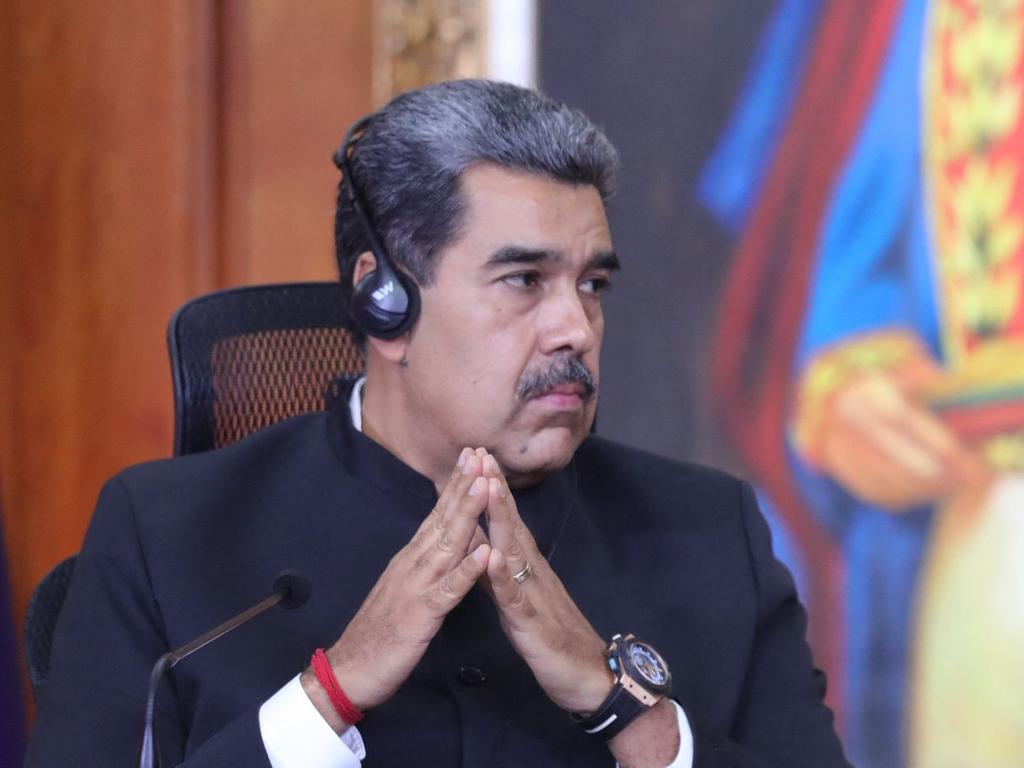



To join the conversation, please log in. Don't have an account? Register
Join the conversation, you are commenting as Logout